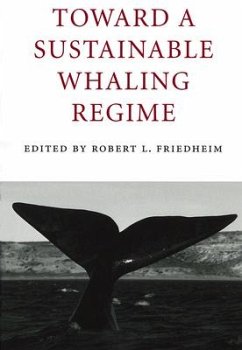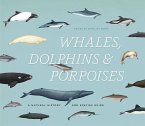Toward a Sustainable Whaling Regime examines the international management of whales and whaling, a subject of intense controversy involving some of the most powerful nations in the world and issues of international law and negotiation, human versus animal rights, traditional and emerging values and morality, and the role of science in environmental management. The conflict centers on the International Whaling commission. The majority of IWC members favor continuing the current whaling moratorium, while a minority endorse a sustainable-use approach to whaling which would allow the controlled hunting of species whose populations are not threatened. Both sides adhere strongly to their core beliefs and claim moral correctness; abundant suspicious and accusations have made meaningful dialogue nearly impossible. Because of the impasse, the IWC is unable to attract new members (some 60 states take cetaceans in their near shore waters, but only about 40 states are members of the IWC) and some-notably Canada and Iceland-have left the Commission. This is the first book that takes a critical look at the contemporary whaling regime, subjecting it to sophisticated political, legal, and anthropological analysis. Contributors consider how to develop an international environmental regime that represents a consensus of most world peoples so that its rules will be obeyed; that allows for sufficient variance from universal norms so as not to disadvantage indigenous peoples and other small-holders; that illustrates how to properly use science to provide the basis of a sustainable whaling regime; and that demonstrates sufficient civility in negotiation to promote cooperation on other, perhaps more important, environmental issues. Introduction by Robert L. Friedheim. Papers by: William T. Burke; Jon L. Jacobson; William Aron; Milton M. R. Freeman; Russel Lawrence Barsh; Elizabeth DeSombre; Robert L. Friedheim; Steinar Andresen; Christopher D. Stone; and David G. Victor.








